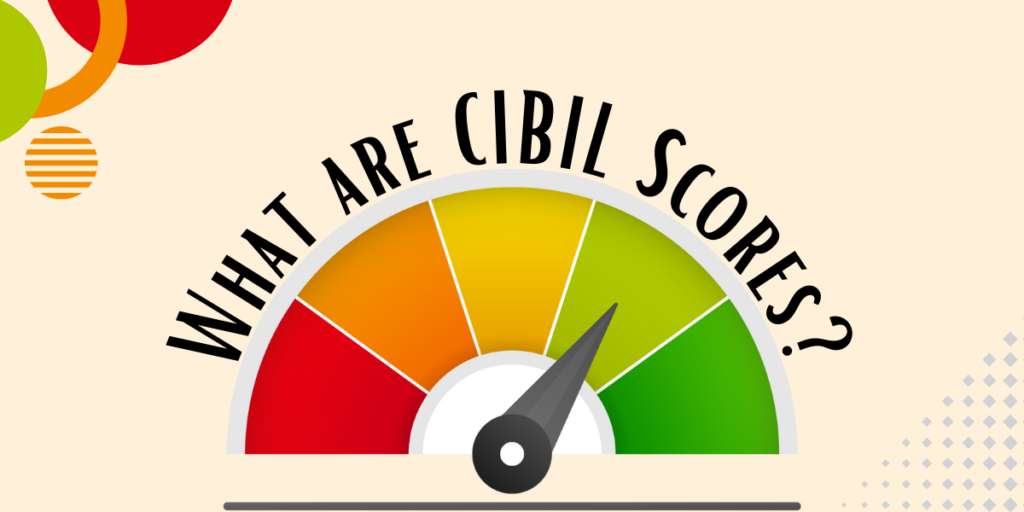In the dynamic landscape of personal finance, the eligibility for loans often hinges on an individual’s Credit Information Bureau (CIBIL) score. This crucial financial metric reflects one’s creditworthiness and plays a pivotal role in securing loans. This article delves into the complexities surrounding loan eligibility, particularly for those with low CIBIL scores.
What are CIBIL Scores?
When it comes to financial eligibility, understanding CIBIL scores is paramount. The Credit Information Bureau (India) Limited, or CIBIL, generates these scores, which reflect an individual’s creditworthiness. They play a crucial role in determining one’s ability to secure loans and favourable terms.
Explanation of CIBIL Scores and Their Significance
CIBIL scores, ranging from 300 to 900, provide a numerical representation of a person’s credit history. The higher the score, the better the creditworthiness. This numerical snapshot is a key determinant for lenders assessing the risk associated with providing credit.
Factors Influencing CIBIL Scores
- Credit History
A significant factor in CIBIL scores is credit history. Lenders scrutinize an individual’s past credit behaviour, emphasizing timely payments and responsible credit use.
- Outstanding Debts
The amount of outstanding debts also plays a pivotal role. High levels of debt relative to income can negatively impact CIBIL scores.
- Credit Utilization
Credit utilization, or the ratio of credit used to the total available, is crucial. High utilization rates may signal financial stress, affecting scores.
The Importance of a Good CIBIL Score
A good CIBIL score is a gateway to favourable financial opportunities. It not only impacts loan eligibility but also influences interest rates and loan terms.
How CIBIL Scores Impact Loan Eligibility?
Lenders use CIBIL scores as a key metric for assessing loan applications. Higher scores increase the likelihood of approval, while lower scores may pose challenges.
Influence on Interest Rates and Loan Terms
A good CIBIL score can lead to lower interest rates and more favourable loan terms. Conversely, a low score may result in higher interest rates and less favourable conditions.
How to Improve CIBIL Scores?
Improving your CIBIL score is a strategic process that requires diligence and commitment. Here are actionable steps to enhance your creditworthiness:
Check Your Credit Report Regularly:
- Obtain your credit report from CIBIL and review it for inaccuracies.
- Dispute any discrepancies promptly to ensure an accurate reflection of your credit history.
Pay Bills on Time:
- Timely payment of credit card bills, loan EMIs, and other obligations is crucial.
- Set up reminders or automatic payments to avoid missing due dates.
Reduce Credit Card Balances:
- Aim to keep credit card balances well below the credit limit.
- High credit utilization negatively impacts your CIBIL score, so pay down outstanding balances.
Avoid Multiple Loan Applications:
- Limit the number of loan applications to prevent numerous hard inquiries.
- Multiple inquiries within a short period can signal financial distress to lenders.
Settle Outstanding Debts:
- Address any outstanding debts and work towards settling them.
- Negotiate with creditors for favourable repayment terms if needed.
Monitor Your Credit Score Regularly:
- Keep a close eye on your credit score to track improvements.
- Many financial institutions and credit bureaus offer free credit score monitoring services.
Educate Yourself About Credit:
- Understand the factors that influence your credit score.
- Knowledge empowers you to make informed financial decisions that positively impact your creditworthiness.
Tips for Presenting a Loan Application with a Low CIBIL Score
Presenting a loan application with a low CIBIL score requires a strategic approach to increase the chances of approval. Here are some valuable tips to navigate this situation:
Provide Additional Collateral:
- If possible, offer additional collateral to secure the loan. This reduces the perceived risk for the lender, making them more inclined to approve the application despite the low CIBIL score.
Highlight Income Stability:
- Emphasize your stable and reliable income. Demonstrating a consistent income stream reassures lenders about your ability to repay the loan, potentially mitigating concerns associated with a low credit score.
Offer a Co-Signer:
- Introduce a co-signer with a higher credit score to vouch for your creditworthiness. The co-signer essentially guarantees the loan, acting as a backup in case you face difficulties in repayment.
Opt for a Smaller Loan Amount:
- Applying for a smaller loan amount may increase the likelihood of approval. Lenders may be more willing to take on lower risks, and successfully repaying a smaller loan can positively impact your credit standing over time.
